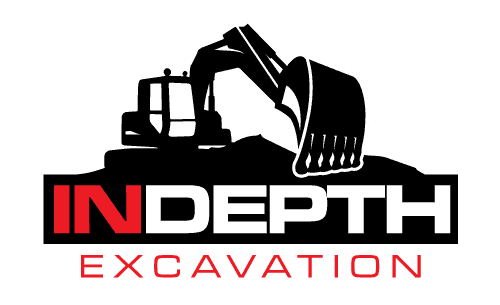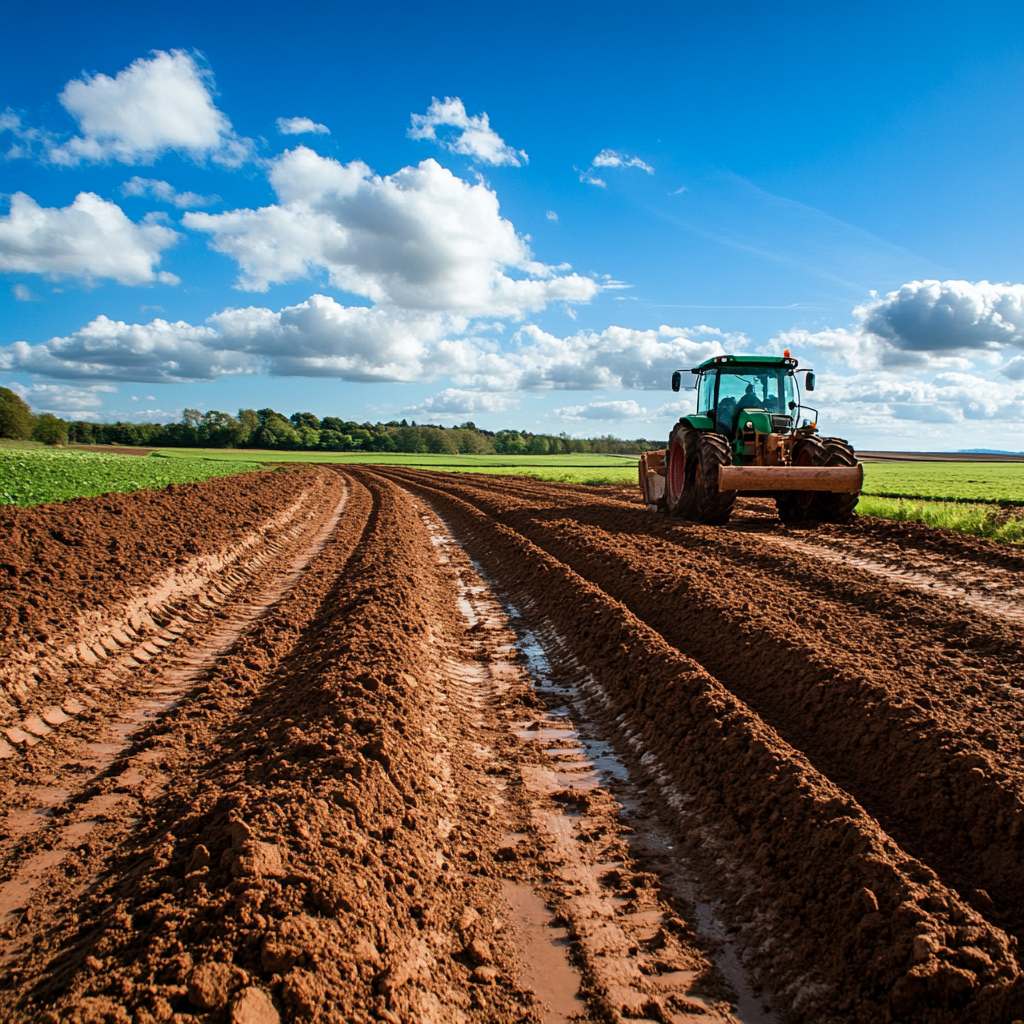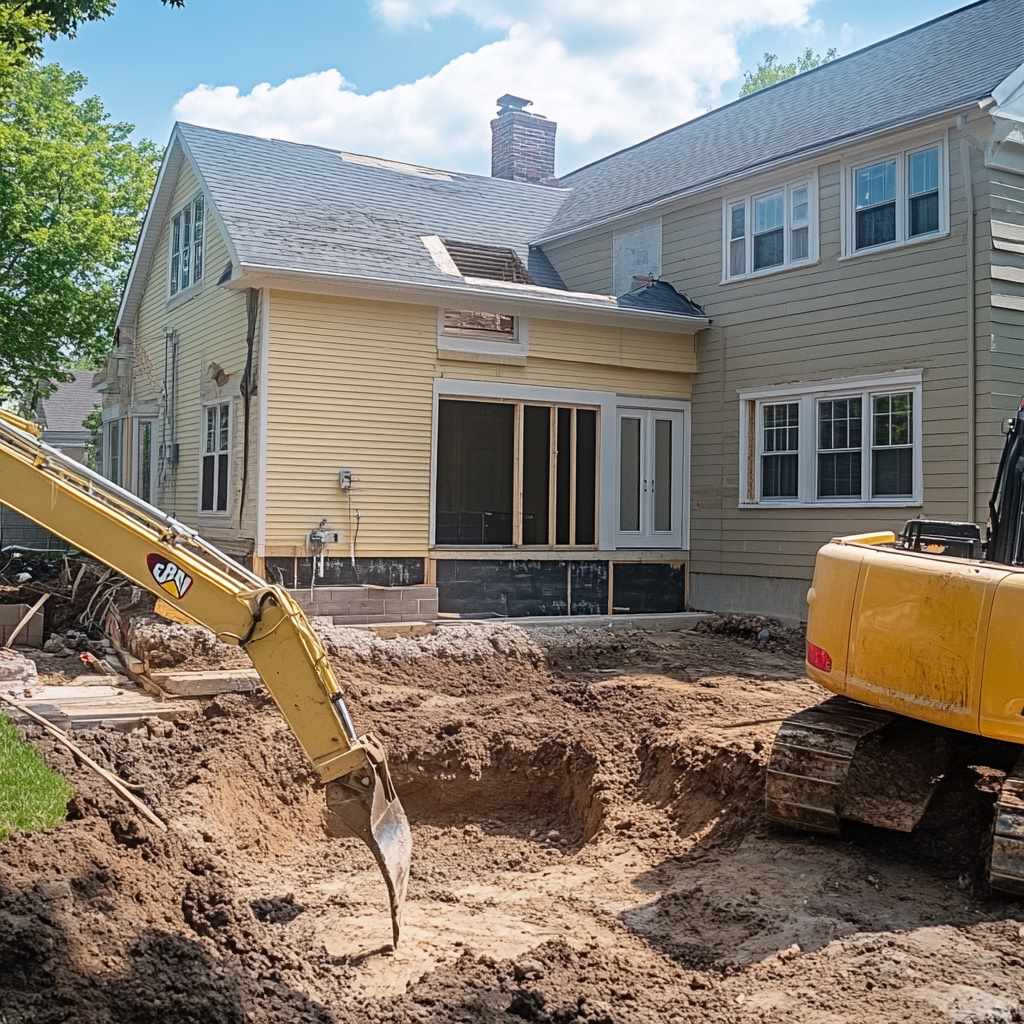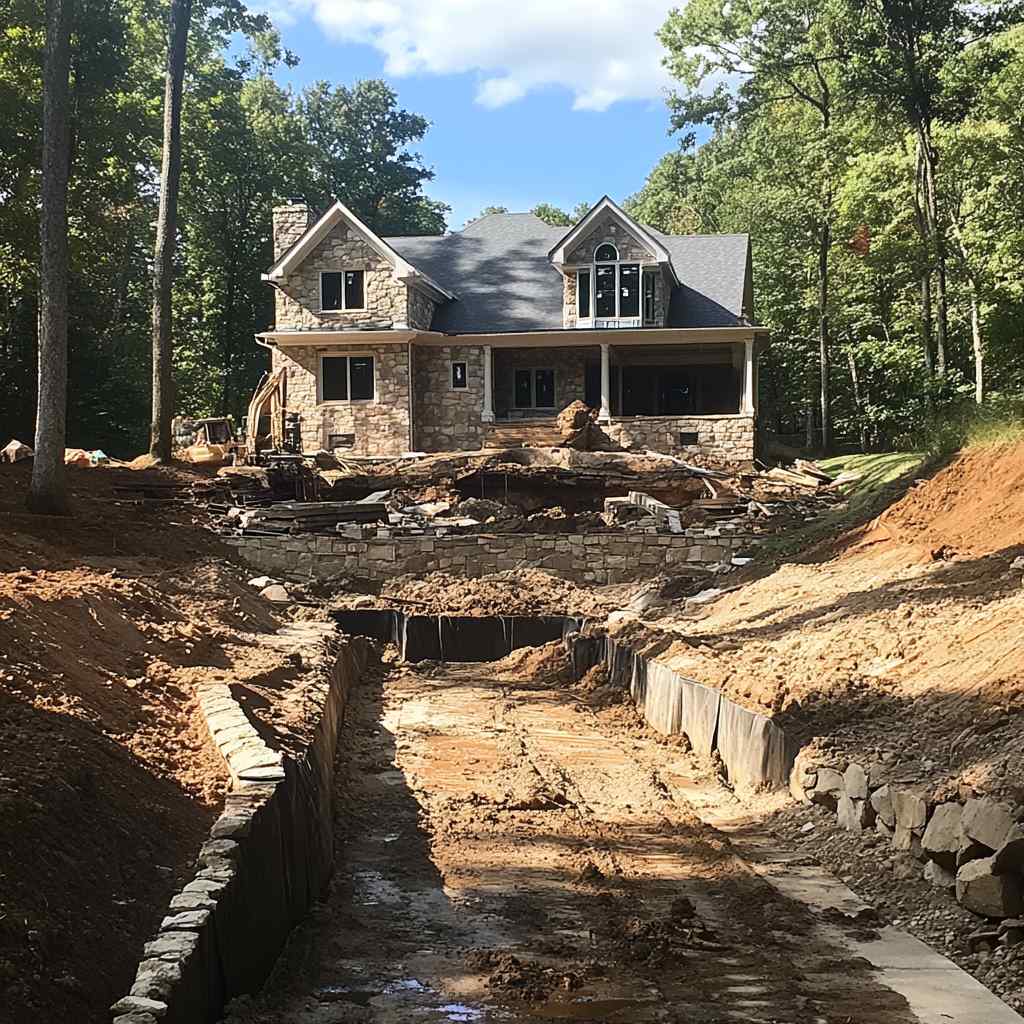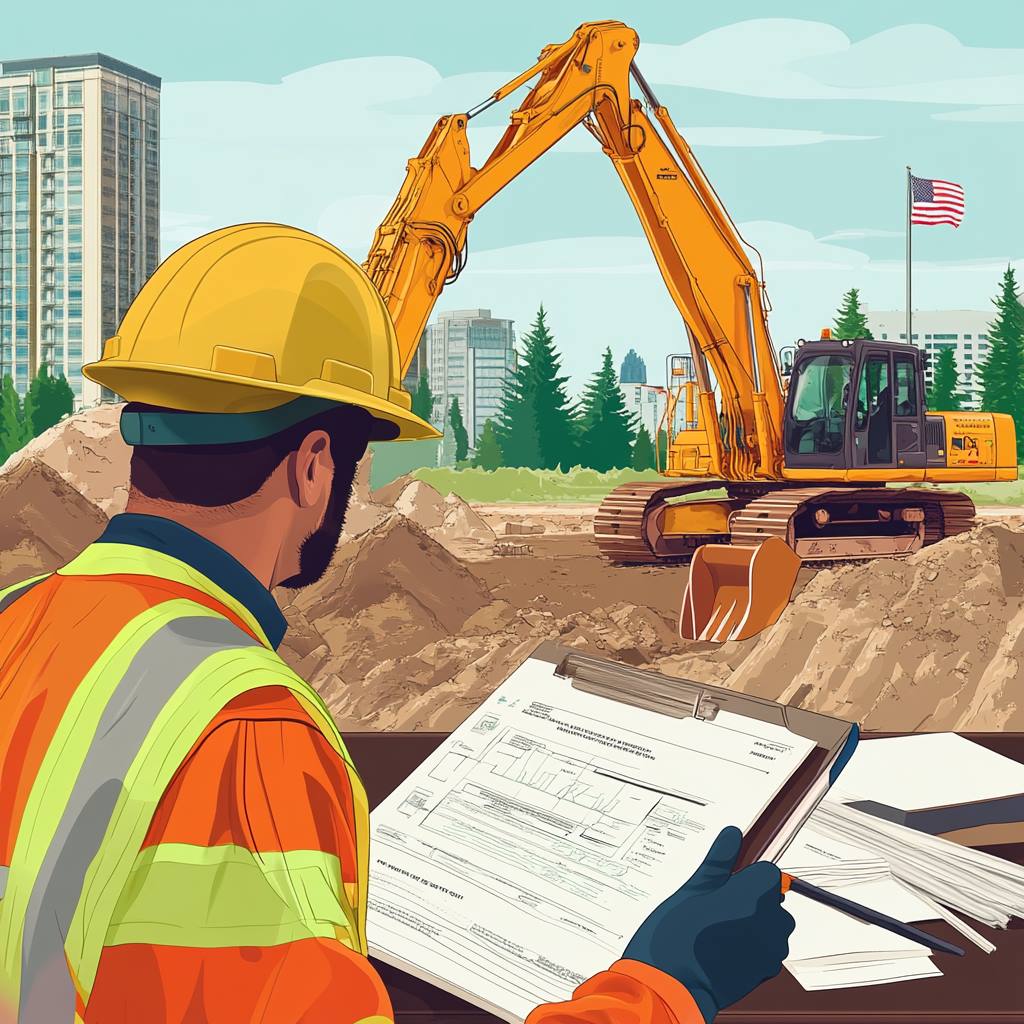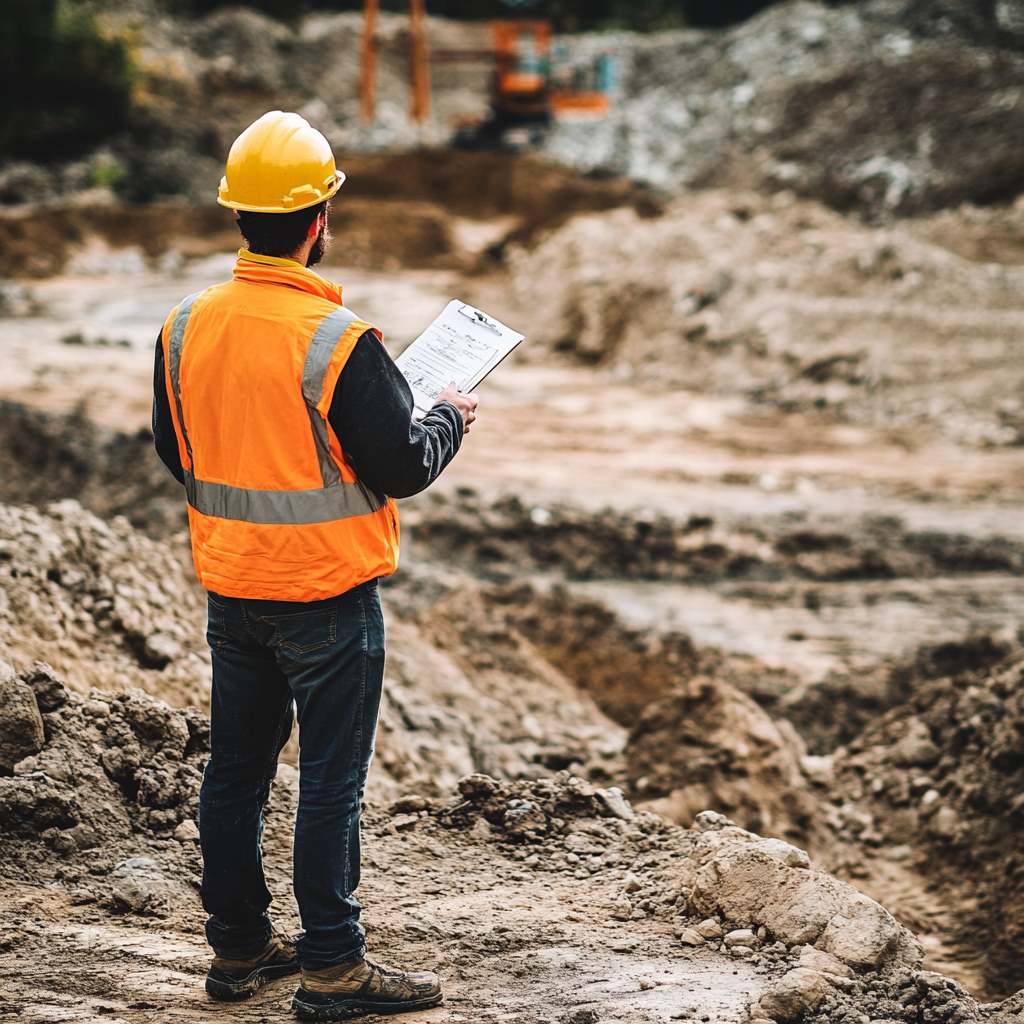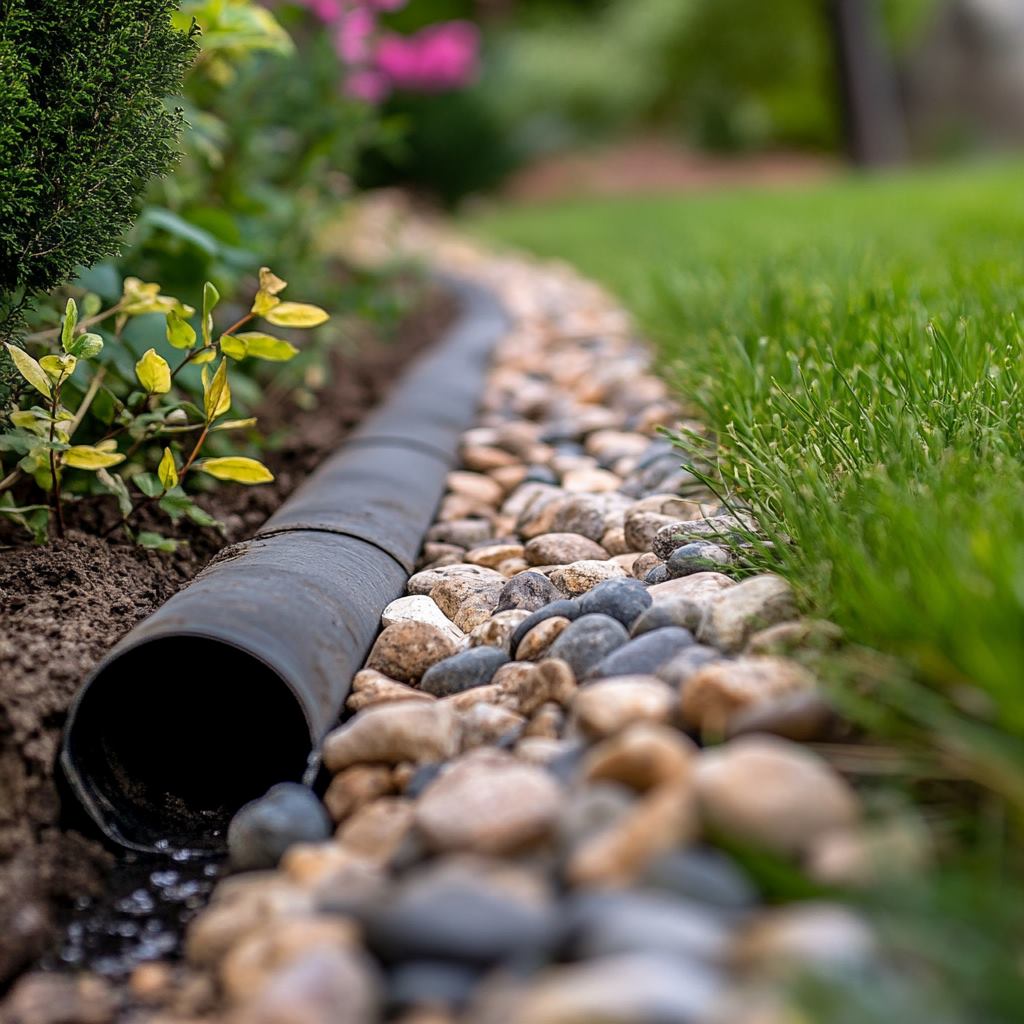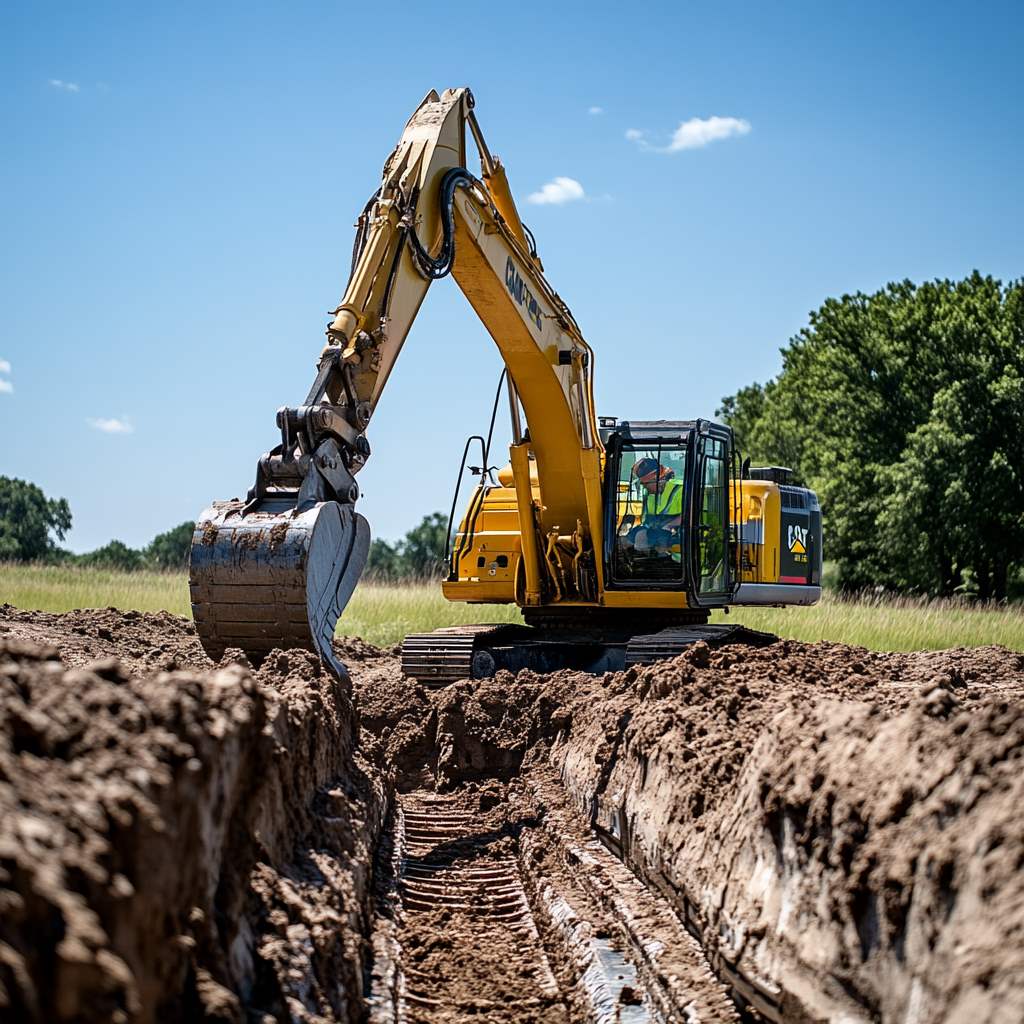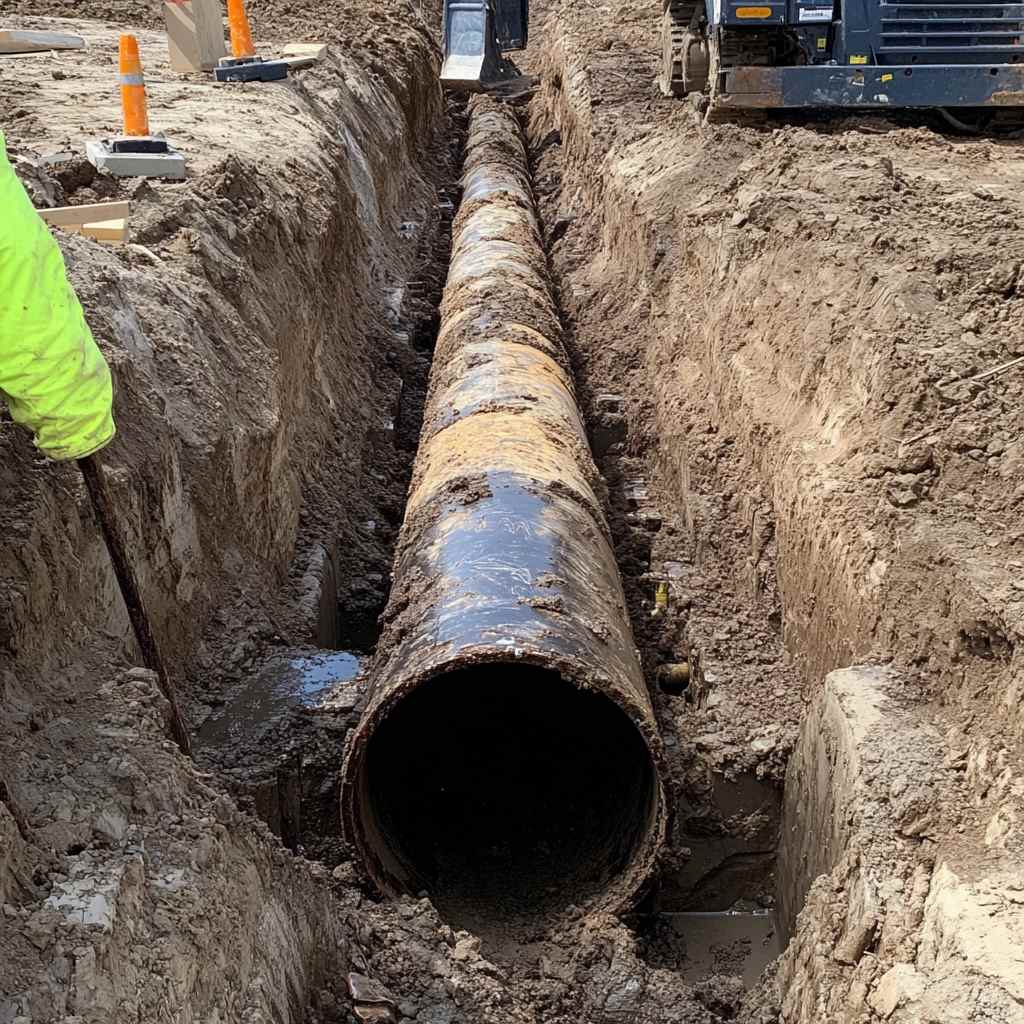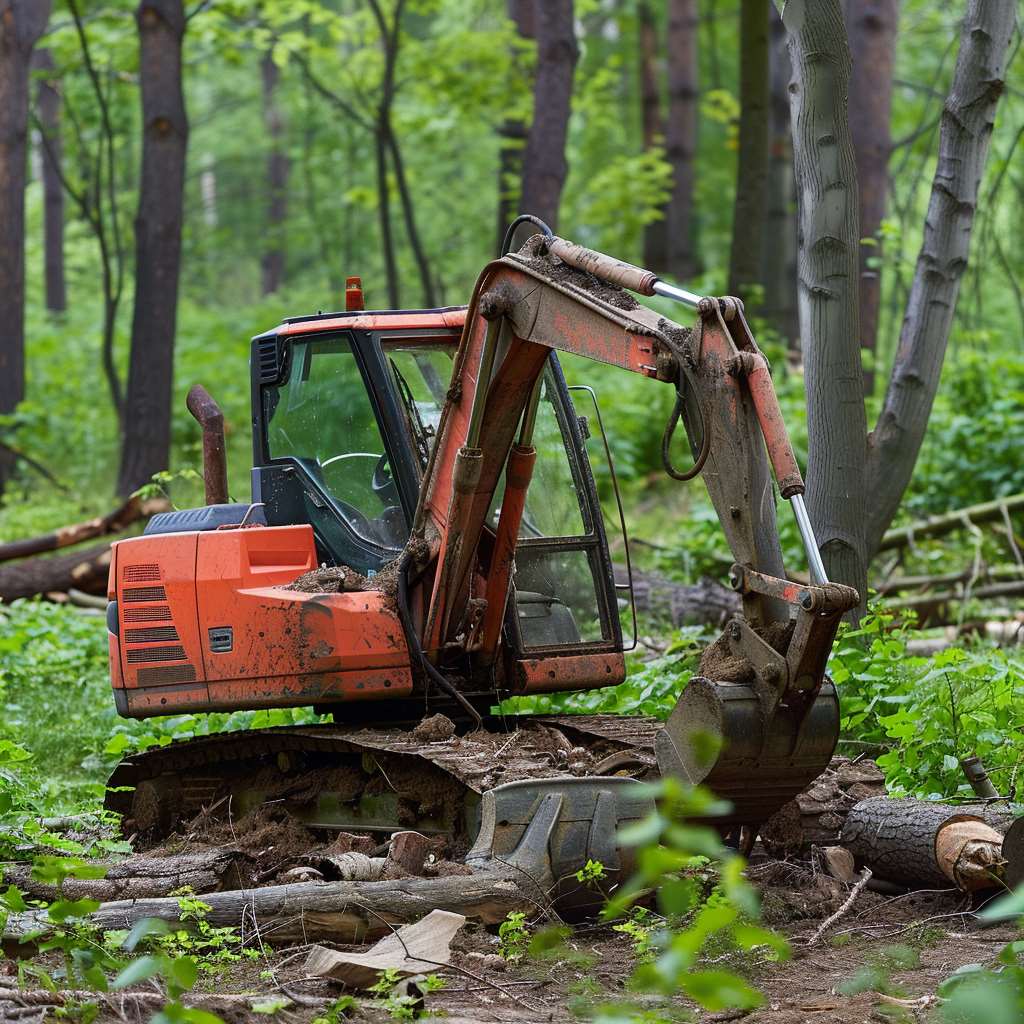When it comes to preparing land for construction, landscaping, or agriculture, understanding the difference between Land Leveling and Land Grading is essential. Both processes are important, but they serve different purposes and involve distinct methods.
We’ll explore the key differences and similarities between land leveling and land grading, helping you determine which is best suited for your project. The professionals at In-depth Excavation specialize in both processes and can guide you through selecting the best approach for your needs.
What Is Land Leveling?
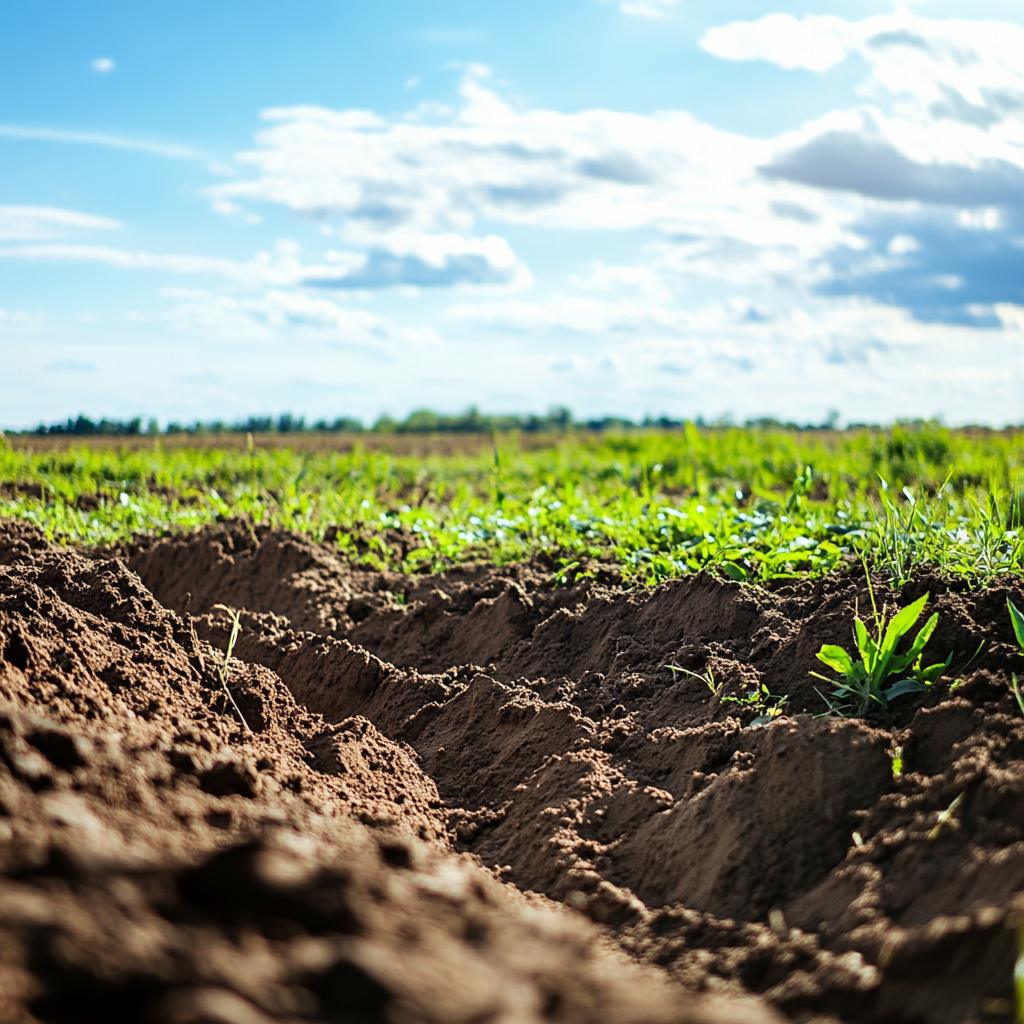
Land leveling is all about reshaping the ground to create a flat, even surface. It’s most often used in farming, where having smooth land can make or break your harvest. The process usually involves both cutting down the high spots and filling in the low ones, until you’ve got a gentle, consistent slope.
This matters because water doesn’t naturally spread out evenly. If the ground has dips or humps, water will either collect in the low spots or rush off the high ones, missing everything in between.
That leads to dry patches, drowned plants, or wasted water. With proper land leveling, you’re giving your irrigation system a fair shot at doing its job.
When the land is flat and slopes just right, water can spread evenly across the field. That means fewer puddles, less erosion, and a better shot at growing a healthy, uniform crop. It’s not just about the water either – a leveled field also makes it easier to plant, work, and harvest.
What Is Land Grading?
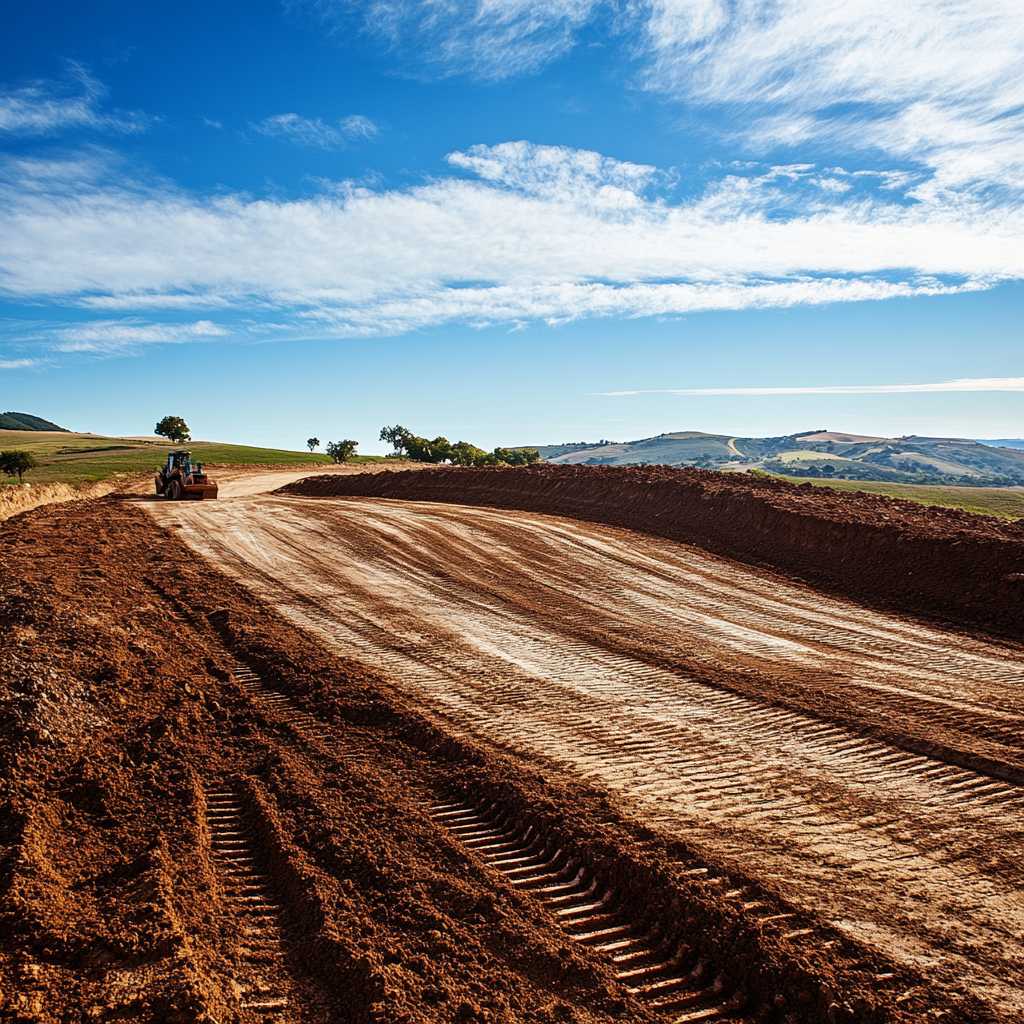
Land grading takes a different approach. Instead of creating a completely flat surface, grading shapes the land to follow a specific slope or contour. This is especially important in construction and landscaping, where drainage and stability are a big deal.
In construction, grading helps make sure water flows away from buildings, not toward them. That’s key in avoiding water damage and soil erosion near foundations. It also sets up a stable base so the structure isn’t shifting or sinking years down the line.
In landscaping, land grading is just as valuable. It can be used to guide water toward drains, shape outdoor areas into gentle hills or flat terraces, and build in a natural flow that makes the space more functional and attractive. Whether you’re prepping for a driveway or sculpting a backyard, grading gives you control over how the land behaves when the rain comes down or when heavy equipment rolls in.
Similarities Between Land Leveling and Land Grading
Despite their different purposes, land leveling and land grading share some common aspects:
- Soil Manipulation: Both processes involve moving soil to achieve the desired terrain.
- Equipment Use: Heavy machinery like bulldozers, graders, and excavators are used in both processes.
- Preparation: Both are essential steps in site preparation for various projects.
Both land leveling and land grading require skilled operators and specialized equipment to achieve the desired results. Whether you’re creating a flat agricultural field or shaping a construction site, precise soil manipulation is key to ensuring success.
Differences Between Land Leveling and Land Grading
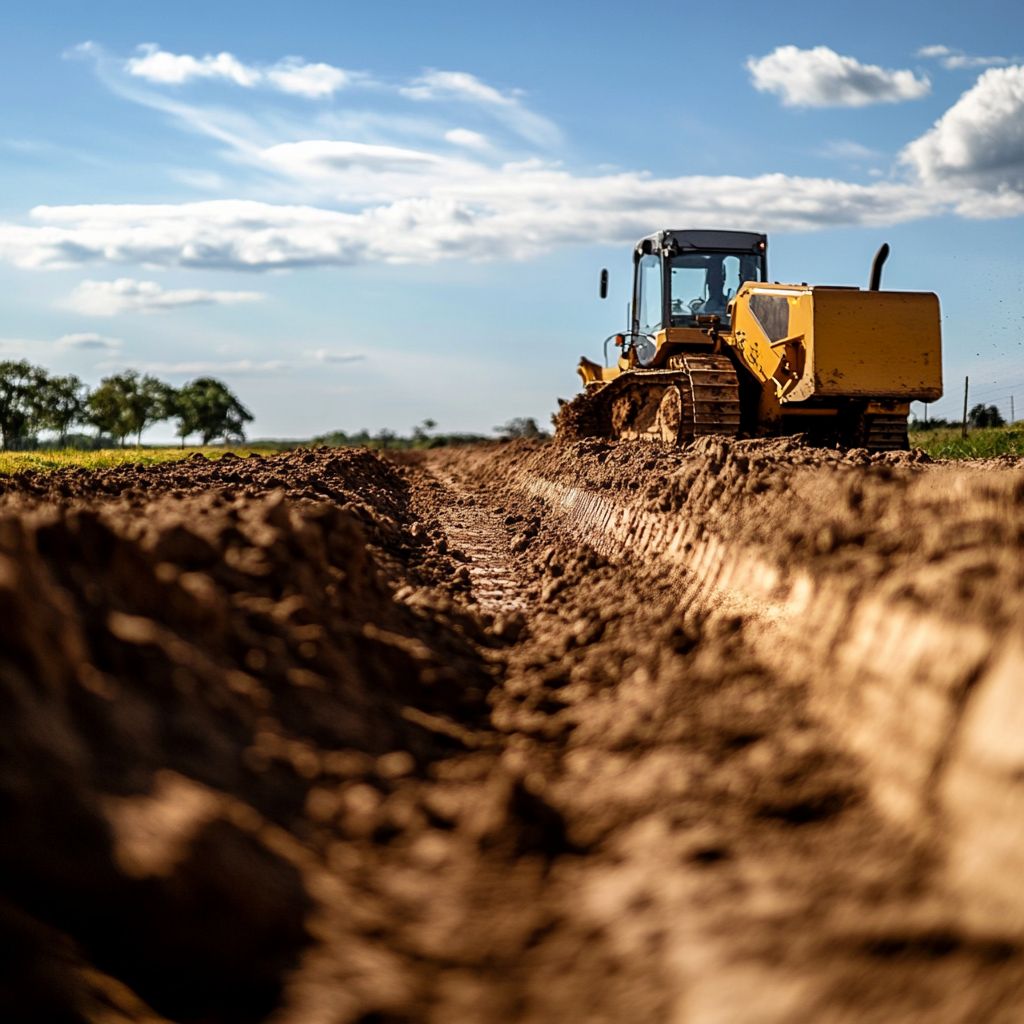
While both processes deal with shaping land, they serve different purposes and use different methods to get the job done.
Purpose: Land leveling is aimed at creating a flat, even surface, most commonly for agriculture. It’s all about getting that uniform slope, so water can spread out properly and boost crop growth. Land grading, meanwhile, is more focused on building needs. It’s used to guide water away from structures, reduce erosion, and prep the site for construction or landscaping projects.
Equipment: Each job uses tools suited to its goals. Land leveling often relies on precision gear like laser-guided graders and scrapers to make sure everything’s even across large areas. Land grading leans more on versatile heavy machinery (think bulldozers, backhoes, and traditional graders) to shape slopes and direct water flow exactly where it needs to go.
Process: Leveling is about smoothing the land out, cutting the high spots and filling the low ones to make it uniform. Grading, on the other hand, means carving the land into deliberate shapes and angles that match a blueprint or drainage plan. It’s less about being flat and more about being functional.
Cost: Since land leveling aims for a single outcome (a flat field)c it tends to be simpler and more affordable. Grading requires more customization and often more time and machinery, which can raise the overall price tag.
Results: The final look and function tell the story. A leveled field is ready for planting and irrigation. A graded site, though, is shaped to control runoff, stabilize foundations, and build on. One’s best for farms, the other for homes, roads, and outdoor spaces.
Which Is Better for Your Project?
The right choice depends on what you’re building or growing. Start by thinking about what the land will be used for. Agricultural projects need flat surfaces, which makes land leveling the better option. Construction sites and landscaped areas, though, usually need customized contours—so land grading wins out there.
Budget plays a role too. If you’re working with a tighter budget and just need flat, even ground, leveling is often more affordable. But if your project requires slope control, drainage planning, or site prep for a structure, then grading is worth the extra cost.
Long-term use is another big one. Are you planting crops? Level it. Laying a foundation or shaping a yard? Grade it.
For land leveling, you’re looking at jobs like agricultural fields, golf courses, and large open lawns, places where even ground makes maintenance and irrigation easier. Land grading is a better fit for projects like residential or commercial construction, road building, or landscape designs that need specific slopes or drainage paths.
In short, both methods have their strengths. It’s just a matter of matching the process to your project’s needs.
In-Depth has your land needs Covered
Choosing between land leveling and land grading depends on the specific needs of your project. Understanding the differences can help you make an informed decision, ensuring that your land is prepared correctly for its intended use.
For professional assistance with land leveling or land grading, Contact Us In-depth Excavation. Our team has the expertise and equipment to handle any project, big or small, ensuring the best results for your land preparation needs.
Phone: 425-367-1521
Email: info@indepthex.com
FAQ: Land Leveling vs. Land Grading
- Land Leveling: Creates a flat surface for agriculture using laser-guided equipment. Generally less expensive.
- Land Grading: Shapes land for construction and drainage using bulldozers and graders. Typically more costly.
Choose land leveling if:
- Preparing agricultural fields.
- Ensuring even water distribution.
- Creating flat surfaces for lawns or golf courses.
Land grading is needed for:
- Construction sites.
- Road construction.
- Landscaping projects.
- Land Leveling: Less expensive due to simpler objectives.
- Land Grading: More costly because of the complexity of shaping terrain.
- Land Leveling: Laser-guided graders and scrapers.
- Land Grading: Bulldozers, graders, and backhoes.
